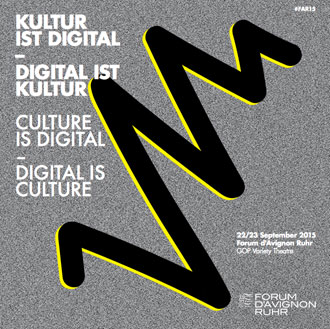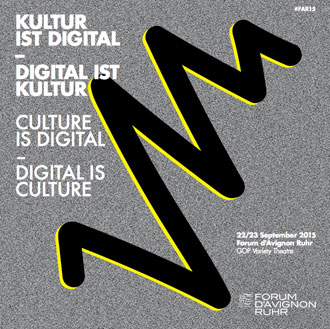Wir brauchen eine Charta zum Schutz der Persönlichkeitsrechte in der digitalen Gesellschaft
Edward Snowden sagte: „Zu argumentieren, Dir seien Deine Privatsphäre und Datenschutz egal, weil du nichts zu verbergen hast, ist genau so, als ob Dir die Meinungsfreiheit egal wäre, weil du keine Meinung hast.“
Jeder von uns wirft einen täglich immensen Schlagschatten von Daten.
Onlinebaking, Tweets, eMails, GoogleMaps, Hotelbuchungen, BewertungsApps, Einkäufe… ; die gesamte Datenmenge weltweit wächst pro Tag rund 2 Zetta-Byte. Das sind, wenn sie sich die Datenpakete als Körner vorstellen, alle Sandkörner der Welt. Mal zwei.
2020 wird es fünfzigmal so hoch sein.
Es geht dabei nicht in erster Linie um die Frage der Überwachung und der Erstellung von Persönlichkeitsprofilen, die eines Tages gegen Sie verwendet werden wird – obgleich das in Facetten längst geschieht, jeden Tag, jede Stunde. Wenn Sie etwa liken, verrät das bereits viel über Ihre Einstellung zur Religion, aber auch Ihre Vorlieben, sexuellen Interessen und politischen Einstellungen. Und ihren Alkoholkonsum. Dazu kommen Ihr Bewegungsprofil, Ihre Lesegewohnheiten, ihre Tippgeschwindigkeiten und die Dauer ihrer Telefonate – alles sind Puzzleteile, die extrem wertvoll sind, die zu einer eigenen Währung geworden sind. Und zwar nicht für den Geheimdienst, der sich in der Tat nicht interessiert für das, was Sie trinken. Höchstens mit wem.
„Zu argumentieren, Dir seien Deine Privatsphäre und Datenschutz egal, weil du nichts zu verbergen hast, ist genau so, als ob Dir die Meinungsfreiheit egal wäre, weil du keine Meinung hast.“
Sondern für Werbetreibende. Oder für Versicherungen: Eine US-Versicherung nutzt z.B. Konsumverhalten zur Abschätzung von zukünftigen Risiken umd berechnet daran auch die entsprechende Risikoprämie. Das selbe gilt für Kreditabteilungen.
60 % des Traffics im täglichen Internet sind Datenströme der Werbe- und Verkaufswirtschaft, wie Bots und Scripte, einschließlich aufgerufener Banner – d.h. Werbung, mit der wir Kontakt haben, das ist neben Pornographie und Kultur-Piraterie der größte Verkehr im weltweiten Netz – unabhängig von den Drogen- Waffen- und Menschenhandel in den Darknets.
Wir müssen Daten und kulturelle Werke als Ware von einem ähnlichen, hohen Wert für Internet-Intermediäre denken. Urheberpersönlichkeitsrecht und informationelles Selbstbestimmungsrecht (eben Datenhoheit, Datenschutz) entspringen derselben rechtspolitischen und verfassungsrechtlichen Wurzel. „Wer für ein „schwaches“ Urheberpersönlichkeitsrecht plädiert, muüsste konsequenterweise auch für ein „schwaches" Datenschutzrecht plädieren.“ [Thomas Elbel, Berlin.]
Mit Daten wird genauso gewirtschaftet wie mit Werken; die Verwertung und das Geschäft mit Daten ist Währung und Produkt, und Kulturwerke sind gleichermaßen Produkt, oder sogar reduziert auf das Unwort: Content. Was nichts anderes heißt als: Füllung.
Gesellschaftsanalytisch handelt es sich bei diesen Entwicklungen um einen „transfer of value“: Den Wertetransfer. Im Kulturbetrieb weg vom Schaffenden, hin zum Verteiler. Nicht mehr die Leistungen der Schöpfer, der Autorin, dem Komponisten, dem Fotografen, werden respektiert und honoriert, sondern die „Leistung“ des Werk-Vermittlers, des sogenannten Intermediär.
Dessen digitale Distributions-Maschine lebt zwar ausschließlich von dem Benzin, das Leute wie ich erstellen, meiner Arbeit, Leistung, Erfahrung, meinen wirtschaftlichen Risiken, Jahren der Erfahrung – doch bezahlt uns der Intermediär weder anständig noch respektiert er den Rechtekomplex von Urheberrechten. Genauso geht es jedem, der nicht Berufskünstlerin ist; auch seine Worte, Bilder oder eben persönlichen Daten, ob Angewohnheiten oder Peinlichkeiten werden benutzt, und er oder sie erleidet den Verlust der Entscheidungshoheit.
So gibt es ebenso einen Wertetransfer von den persönlichen Daten zu einer Währung; es gibt nichts umsonst, jeden angeblichen Gratis-Service bezahlt man mit seinen intimen Daten und der Aufgabe von Bürger- und Menschenrechten.
Es profitiert die GAFA-Connection und ihre Mitbewerber aus Silicon Valley. Ob Google, Amazon, Facebook oder Apple, YouTube, Netflix oder Spotify. Ihre Distributions-, Sammel- und Verwalterfähigkeiten, werden weit höher ge-, nun ja, gewertschätzt, als das Schaffen jener zum „Content“ degradierten Werkleistungen, mit denen die Verteil-Maschinen überhaupt erst funktionieren – und auch weit höher als die bürgerrechtliche, menschenrechtliche und grundrechtliche Hoheit und Souveränität über die eigenen Vorlieben, Kaufgewohnheiten, Tätigkeiten, Lesegewohnheiten. Nicht mehr die Privatsphäre ist das Wertvolle, sondern der Konsum und seine Verteiler.
Das heißt: wer zu Datenschutz Ja sagt, kann Urheberrecht nicht ausschließen – und auch nicht Jugendschutz oder Schutz vor Mobbing.
In allen Belangen geht es um Persönlichkeitsrechte, die jedem Menschen in der die Hoheit und Bestimmungssouveränität über alles gibt, was er produziert – ob professionelle Kulturwerke, ob WhatsApp-Fotos, ob eMails, ob Lesegewohnheiten. Und das in allen Welten, ob digital oder analog.
Dort ist der Link, der uns zu der Frage führt, in welcher Sorte digitaler Gesellschaft wir leben wollen: Ob in einer integeren Gemeinschaft – oder in einer konsum- und umsatzorientierten, deren größte Player keine Rücksicht auf Persönlichkeitsrechte nehmen will, und das bisweilen hinter Wörtern wie Innovation und Wachstum verschleiert.
Das Impuls-Statement hielt die Schriftstellerin und PEN-Beirätin Nina George (42) anlässlich des #FAR15, Forum d’Avignon-Ruhr in Essen, am 23.09.2015 während des Themen-Panels
CREATING THE DIGITAL SPACE: POSITIONS AND PERSPECTIVES IN POLITICS, ECONOMY AND CULTURE // DEN DIGTALEN RAUM GESTALTEN: POSITIONEN UND PERSPEKTIVEN IN POLTIK, WIRTSCHAFT UND KULTUR
Moderation: Laure Kaltenbach (Managing Director, Forum d’Avignon Ruhr) & Jan Fleischhauer (Journalist, Der Spiegel).
Es debattierten:
• Karel Bartak (Head of the Creative Europe Coordination Unit, European Commission)
• Nina George (Bestselling Author/Board Advisor, PEN-Zentrum Germany (International Association of Writers)/Founder, Initiative Fairer Buchmarkt (Initiative Fair Book Market))
• Marjan Hammersma (Director General Culture and Media/Secretary General in the Ministry of Education, Culture and Science, Netherlands)
• Alfred Holighaus (President, SPIO – Spitzenorganisation der Filmwirtschaft e.V. (Head Organisation of the German Movie Industry))
• Marc Mossé (Director, Legal and Public Affairs, Microsoft France/Vice-President, Renaissance Numérique)
• Katarzyna Szymielewicz (Co-Founder/President, Panoptykon Foundation/Vice President, European Digital Rights)
www.forum-avignon.org


